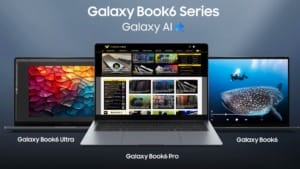AI-generated music earns record deal for UK creator
British artist Oliver McCann, known as imoliver, signs a record deal for AI-generated music, sparking debate on AI’s role in the industry.

British creator Oliver McCann, known artistically as imoliver, has secured a record deal for music entirely produced using artificial intelligence. According to the Associated Press, McCann’s breakthrough came after one of his AI-generated tracks amassed three million streams on Spotify. This marks one of the first record deals of its kind, signalling a significant shift in the music industry as AI technology continues to evolve.
McCann writes his own lyrics, but AI platforms, including Suno and Udio, generate all accompanying melodies and instrumentals. Speaking about his achievement, McCann admitted he has no traditional musical training. “I have no musical talent at all. I can’t sing, I can’t play instruments, and I have no musical background at all,” he said.
His success is likely to spark further discussion within the music industry, especially among musicians who have spent years developing their craft. The rise of AI-generated music is challenging traditional notions of artistry, creativity, and talent in the digital age.
Growing debate over AI and copyright concerns
The use of AI in music production has been a controversial subject, particularly as many AI platforms rely on vast libraries of existing music to train their models. This has raised concerns among artists and industry professionals about copyright infringement and fair compensation.
AI developers and record labels are now engaged in negotiations to establish agreements over copyrighted content used for training AI systems. These discussions are expected to determine how revenue is shared between rights holders and technology companies. However, industry experts emphasise that the frameworks governing these relationships are still in the early stages of development.
McCann’s deal highlights how rapidly technology is reshaping the industry and serves as a sign that AI-generated music is likely to become more prominent. It has also intensified debates over authenticity, originality, and the future role of human creativity in music production.
The future of AI in music
With McCann’s signing, many analysts believe that more artists will embrace AI as a creative tool or even rely on it entirely to produce music. As AI technology advances, fans can expect an increasing number of tracks that are either partially or wholly constructed by machines.
The trend reflects a growing shift in how music is made and consumed. While traditional musicians may view the development with scepticism, supporters argue that AI is democratising music creation by allowing individuals with no formal training to produce professional-quality tracks.
For McCann, the record deal marks a major milestone and a testament to AI’s disruptive power in the arts. Whether the industry welcomes or resists this shift, his success demonstrates that AI is no longer a novelty but a viable force shaping the future of music.
















